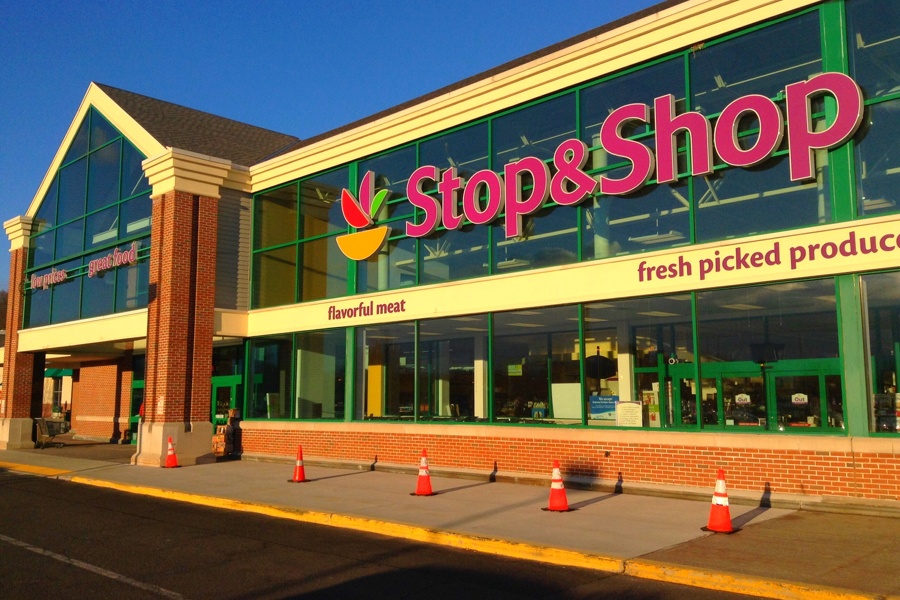A Major Stop & Shop Strike Is Just Around the Corner
After a series of votes this weekend, it could happen soon.

Photo by Mike Mozart via Flickr/Creative Commons
They haven’t decided to walk off the job just yet, but unions representing thousands of employees at Stop & Shop in New England this weekend made that a very real possibility for the grocery chain.
In a series of votes on Sunday, the members of five New England chapters of United Food & Commercial Workers International voted to authorize a strike, meaning one could begin quickly if the labor groups and management can’t come to an agreement on a new contract. The two sides have been fighting since January over wages, pensions, health care, and vacation time, and union leadership say employees are being squeezed.
The hardworking Local 328 members at @StopandShop voted unanimously to authorize a strike today! We stand strong and united for a deal that respects our members, their families, and the communities they serve. pic.twitter.com/Xvevvwecjy
— UFCW Local 328 (@UFCWLocal328) March 10, 2019
Tonight the hardworking members of UFCW Local 919 voted unanimously to strike for better wages & benefits! #UnionStrong #strongertogether pic.twitter.com/awCeId3fQR
— UFCW LOCAL 919 (@Local919) March 10, 2019
Stop & Shop employees last went on strike for one day in 1988.
The Quincy-based chain owned by Dutch company Ahold Delhaize says it has 31,000 employees in Massachusetts, Connecticut, and Rhode Island. It claims its staff “are among the highest paid in the industry,” with average wages for full-time employees at $21.30, and says its proposed contract is necessary to stay competitive.
“We look forward to our negotiations with the UFCW locals and a strong, collaborative agreement that continues to reward our associates and maintain Stop & Shop’s position as a leading employer, trusted resource and vital community partner across the region,” the company says on its website.
Among the many things on their minds, members have also taken issue with Stop & Shop’s recent adoption of an aisle-roving robot named “Marty” and—like other unionized workforces—fear the impact automation in all its forms will have on their livelihoods.


